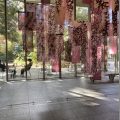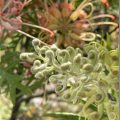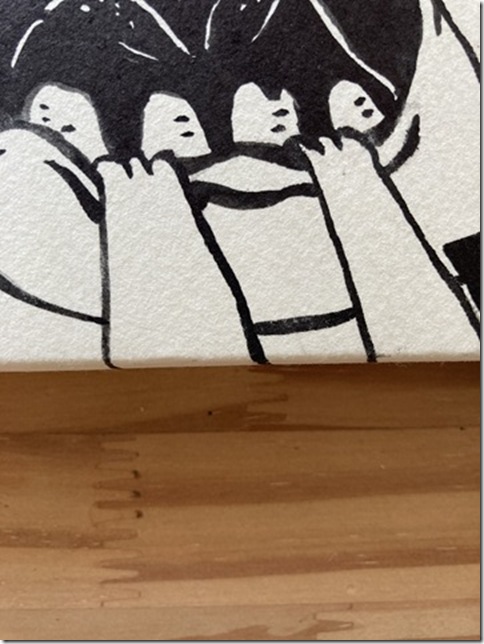
[This is a repost of my 2024/09/01 newsletter. You can read the archive here.]
Good afternoon. Good morning. Good evening.
How is your weekend coming along?
This issue is about gratitude practice; 1) my interpretation and 2) why it’s not for everyone.
A young friend and gentle reader has a conundrum. She practices gratitude, but it doesn’t feel authentic to her. She wonders if I have some wisdom to share.
I thought about it for a while and then wrote her back.
My wisdom to share is to keep living so you can experience what’s to come. It doesn’t matter what you do or how you live. Authentic or inauthentic, I don’t care. Just don’t die if you can help it. (I know it sounds morbid but.) Because there will be different things happening, and at some point, there will be a time, a moment, when you will be dumbfounded and grateful to be alive.
“I am so good at not dying.” has been my tagline for years.
~~~~
My interpretation of what a gratitude practice is, and what it’s not
To me it’s a time to identify and reflect (on what actually felt good, what actually made me smile, what actually made me feel warm inside, what made me seen/heard/known, what made me say a what-would-I-do-without-you, etc), to give credit, and to send love and thank you. Just typing this makes me happy.
It’s not a means to feel okay about having good things (or what looks good in the eyes of others/community/society). Many of us feel guilty for good things happening to us. We humans know in our heads we deserve good things just for existing. But in our hearts? It can be challenging at times.
Feelings of indebtedness are worse. Deep down, those emotions often make us feel powerless and resentful. A gratitude practice will not relieve us from the heaviness of the heart, the oppressive feeling of someone owning us. No one owns you but you. You are yours, 150%.
Gratitude practice is not a way to appease other people’s envy or jealousy, or to preemptively shut off criticism or judgment from others. Some people will always be envious, jealous, critical, and judgmental. “I’m grateful” statements made in public may get some people off our backs, but they won’t protect me. A gratitude practice is personal and private.
Gratitude is not for everyone: why a gratitude journal doesn’t work for Asian people (an excerpt from the 2023/03/05 issue of this newsletter)
Last month, I was chatting with a good acquaintance about our daily schedule. What we do right after waking up in the morning, what next, and so on.
Good acquaintance (←Asian): “I’ve been trying to keep a gratitude journal for a while, but it’s not working.”
Ayuko (←Asian): “Mhm.”
Good acquaintance: “I don’t feel good when I write in my gratitude journal. I feel guilty…”
Oh. I’ve heard that from other people. I used to feel that way too. Writing gratitude for positive things that happened to us and feeling less positive and more anxious (instead of feeling happy, like those books promised)? Yes.
We can’t help it. We’re just that kind of people. Research shows that gratitude practice doesn’t work for us Asians. While white people feel positive after gratitude practice, Asian people remain the same or get stressed out.
Ayuko: “And guess what! It doesn’t matter whether you’re an Asian who grew up in Asia immersed in Asian culture, or an Asian who grew up in North America immersed in North American culture; the same results!”
Good acquaintance: LOL~
Do I deserve the good things that happened to me? Am I deserving? We are the kind of people who wonder about these things.
Of course, you are deserving!!! We don’t have to feel guilty about good things happening to us. And yet.
Ayuko: “I’ll send you a link to the article.”
Good acquaintance: “Thanks!”
Here is the article “How Cultural Differences Shape Your Gratitude.” Jump to “Who benefits from gratitude practices?” and you’ll find this.
This was the question behind a 2011 study where researchers invited Anglo-Americans and Asian Americans to try writing gratitude letters to their friends and family. Each week, some people wrote for 10 minutes about their appreciation, and others (as a comparison) simply wrote about what they had done that week. They also reported how satisfied they were with life.
After six weeks of gratitude, the Anglo Americans saw a boost in their well-being—as previous research would have predicted. But the Asian Americans did not; their satisfaction with life barely changed.
Similar studies have found that Indian and Taiwanese participants don’t feel more grateful and South Korean students get a smaller well-being boost after writing gratitude letters, compared to their American counterparts.
Why don’t Asian and Asian American participants see the same benefit from this practice?
Expressing appreciation for other people’s help may generate more mixed emotions for them, like indebtedness, guilt, and regret.
In a recent study led by Liudmila Titova, for example, Indians who wrote about their gratitude did feel more positive emotions, but they also felt more guilt and sadness—feelings absent in Anglo Americans. The guilt they carried was mirrored in their writings, which more often talked about feeling in debt.
What are you doing this coming week?
I’ll be reading a lot about exposure therapy! Oh my.
Be you~~
Ayuko
today’s special
I am running an art show together with SPF Dale, a mixed-media artist. This piece here is one of my favorites. We’ve all been there.
If you’d like to purchase it, please send me a message with the title of the art piece and the shipping address.
SPF Dale “様々な方向に・In Different Directions”(2025) Ink on paper 18 X 18 X 2cm JPY9900 + shipping
SPF Dale “様々な方向に・In Different Directions”(2025) Ink on paper 18 X 18 X 2cm JPY9900 + shipping
SPF Dale “様々な方向に・In Different Directions”(2025) Ink on paper 18 X 18 X 2cm JPY9900 + shipping
SPF Dale started drawing and painting as a young child. They remind me of an iceburg: gentle and mysterious. You know, the way even the tip of an iceburg surprises you with a unique scenery, depending on where you are. A mixed-media kind of human, SPF Dale works with all sorts of materials, including fabric, ceramics, and clay.
The title of this show, “Becoming (in Progress),” refers to the progression from their last show in Kyoto, “A Little Lost.”
They grew up in Singapore in a Malaysian Chinese and Norwegian family, received academic training in Europe, and eventually found their way to Japan as a young scholar in 2009. They’ve lived here since.
The Gallerist (me): In the Artist profile, should I say ‘SPF Dale PhD’?
The Artist (Sonja): Nah. That’s for people who want to tell the world they have a PhD.
Me: Does that mean I can’t mention it where it’s relevant?
Sonja: Uh. You can.
I had the chance to read their doctoral dissertation on queer theory, which they opened with the phrase, “Gender, way of being.” I enjoyed reading it, bit by bit.
The SPF Dale who wrote these words over a decade ago is a different person from the Artist today. We are always on the way somewhere, in motion. The same is true of creative works, I think. They speak to us about those in-progress moments, each one marking where the Artist was at that particular time.
something new: a new shampoo
something read: Becky Kennedy “Good Inside: A Guide to Becoming the Parent You Want to Be,” a little bit of
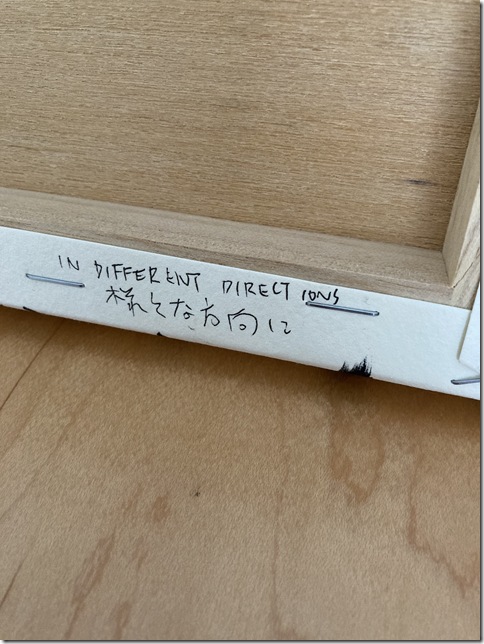
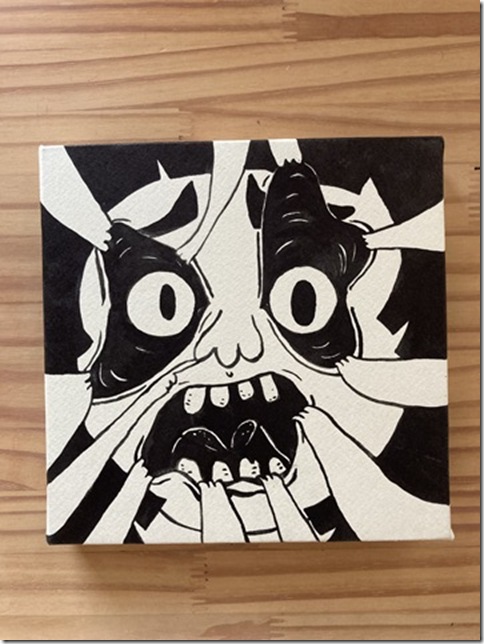
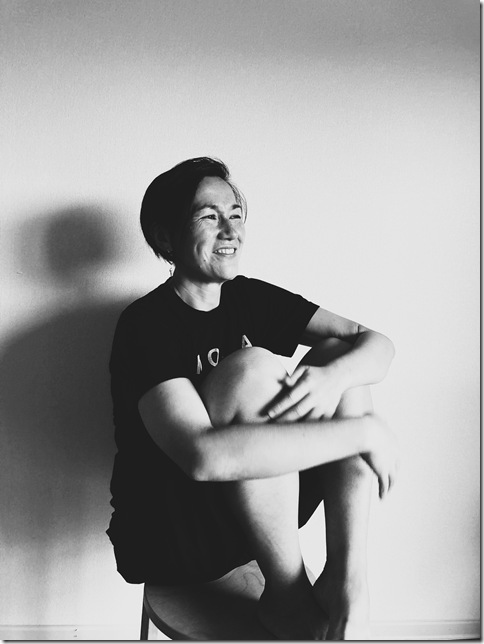
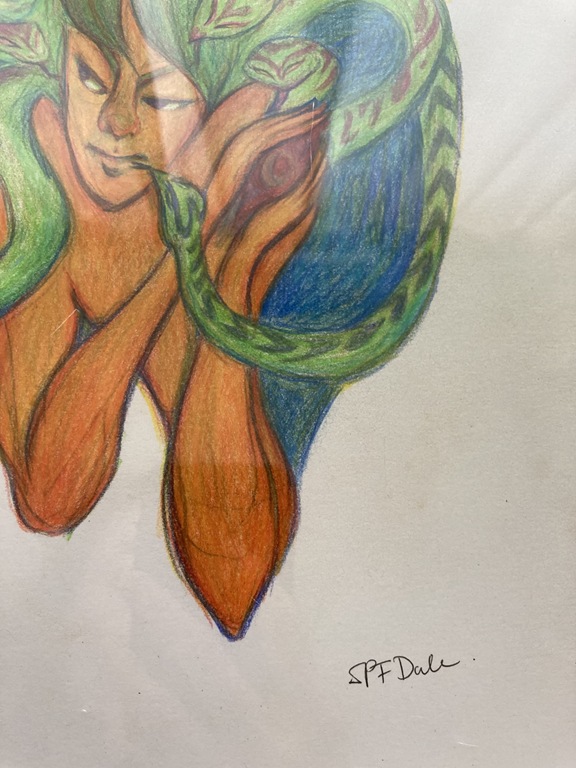 SPF Dale Trust (2024) Colored pencil on paper, approx. 21×29.7cm Price: ¥13,200 + shipping
SPF Dale Trust (2024) Colored pencil on paper, approx. 21×29.7cm Price: ¥13,200 + shipping


